How Many Words Should Your Baby Be Saying?
Communication is the Essence of Human Life
Many parents are often seeking answers to questions regarding their child’s overall speech and language development. There is so much information online that leaves parents feeling confused about what’s “typical” or “normal”. It is important for parents to be well informed on speech and language norms to ensure they can seek out professional assistance from a Speech-Language Pathologist when needed.
One of the most important things needed for the development of communication skills is adequate hearing abilities. A hearing screening occurs in infancy and many children will not have additional hearing screenings until later in their toddler years if their hearing screening is passed. It is not uncommon for children to get ear infections during the infancy and toddler stages, but if the ear infections occur frequently parents should inquire about hearing abilities. A history of chronic and frequent ear infections can lead to a delay in communication development due to your child not hearing as they should.
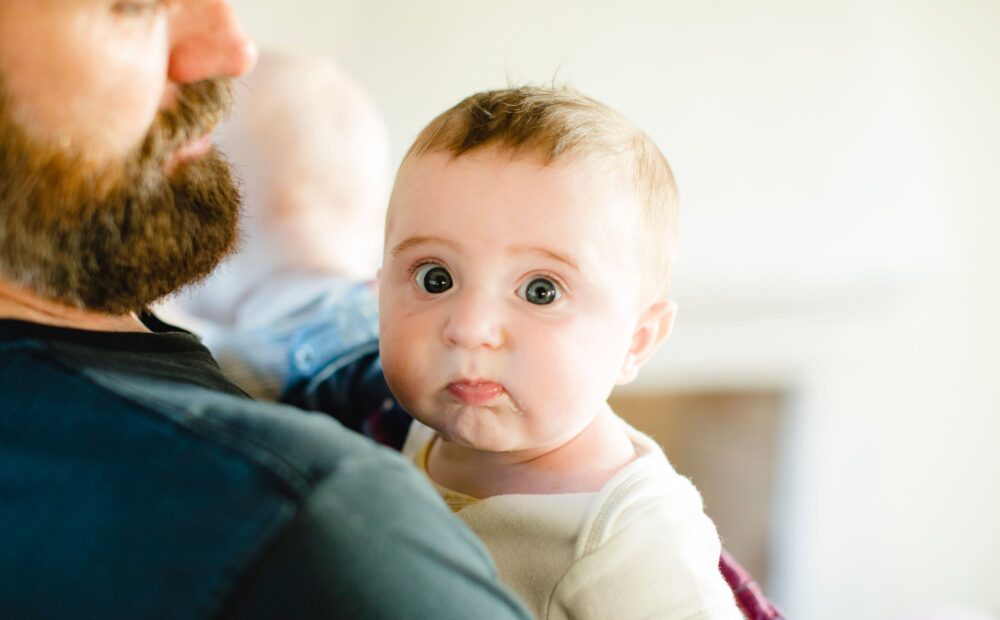
Beyond the hearing monitoring stages, parents usually start to pay close attention to their child’s speaking capabilities within the 1 and a half year to the 2-year mark. However, speech and language skills truly begin developing at birth. Prior to a child ever speaking their first words attention and gestures are forming as the foundation for those “first words” that will come.
Joint attention, object permanence, and gestures begin to shape the formation of verbal words. It is of extreme importance that children have interactions with their parents for these skills to be monitored. Joint attention is simply the shared attention between you, your child, and an object. Object permanence involves your child remembering that something still exists even though they can’t see it. Play routines between child and parent are the best way to account for whether these skills are present. By 16 months of age, children have at least 16 gestures they use for communication purposes (i.e. waving hello, pointing, head nods, etc.). These are all critical skills that can drastically impact communication skills that develop all before 1 and a half years of age. Knowing what these skills are, how to encourage them, and what to do if the skills are not present can allow parents to take action sooner rather than later.
So How Many Words by Age?
It is important to remember that all children develop at their own rates, but there are general rules of thumb parents can use to help monitor their child’s progress. This is especially true during the first 3 years of life as these are critical years for developmental progression.
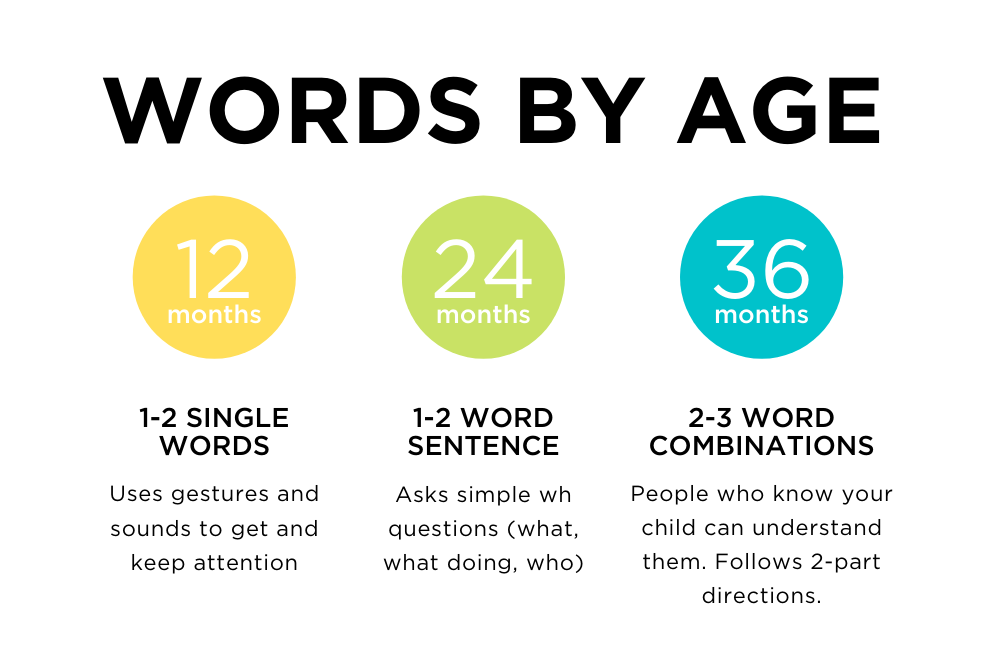
Age 1
Says 1-2 words such as “mama, dada, bye-bye, hi, uh oh”. Uses gestures and sounds to get and keep attention. Turns when their name is called.
Age 2
Puts two words together. Points to pictures within a book. Asks simple wh questions (what, what doing, who). Follow 1-part directions.
Age 3
Has a word for almost everything. 2-3 word combinations. People who know your child can understand them. Follows 2-part directions.
.
This is of course not a comprehensive list, but rather a foundation of speech and language skills parents should be aware of. Parent education is a large part of the speech-language pathology world, and the more knowledge parents are equipped with the more likely they can act fast to intervene early while seeking out professional guidance.
For more information on speech and language skills, you can visit https://www.asha.org/public/speech/development/chart/

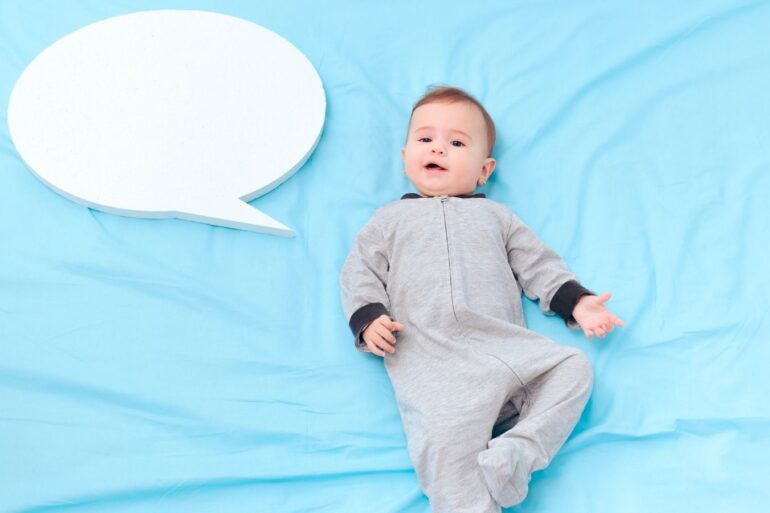


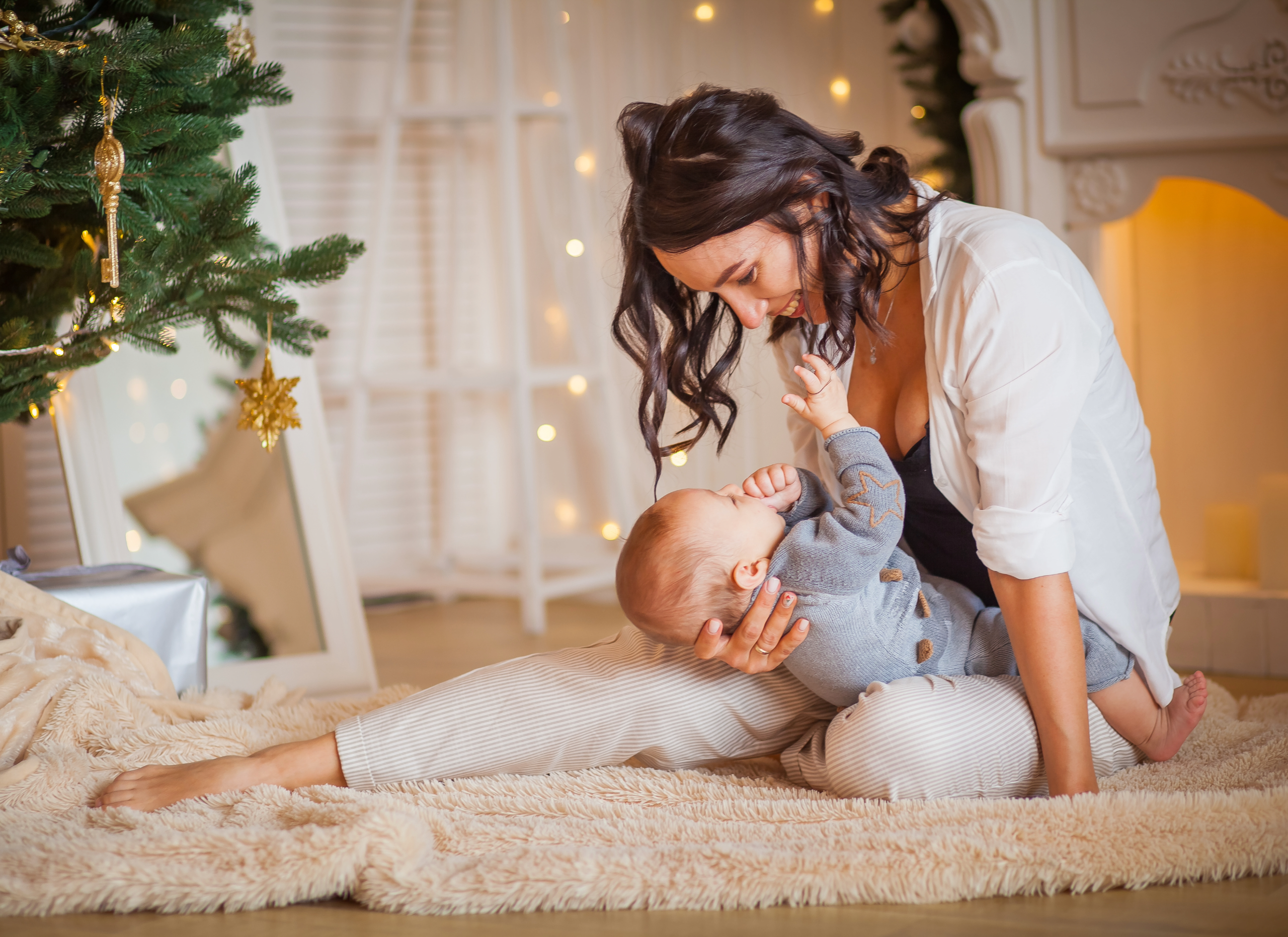
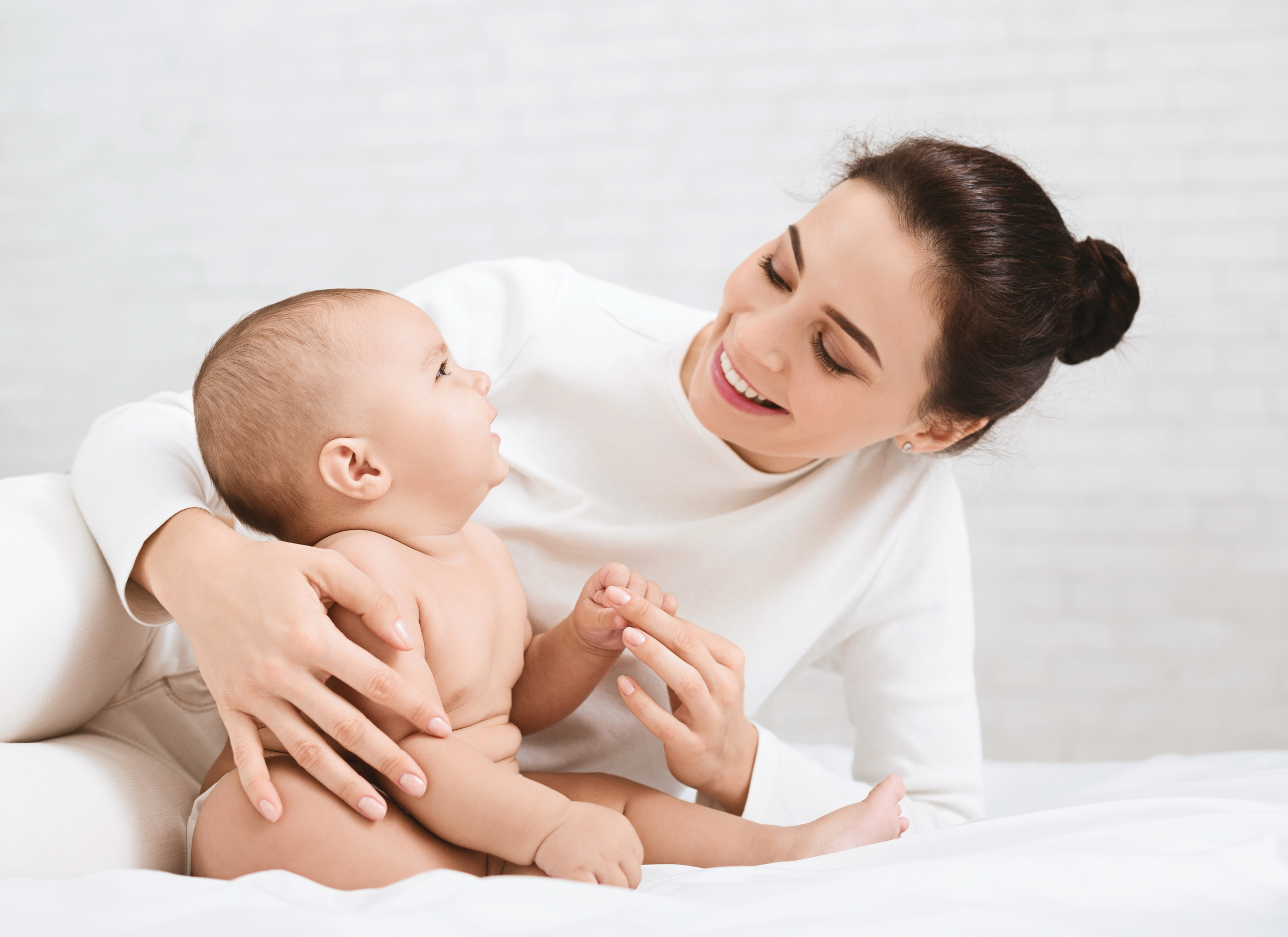

♥️ Great Article!